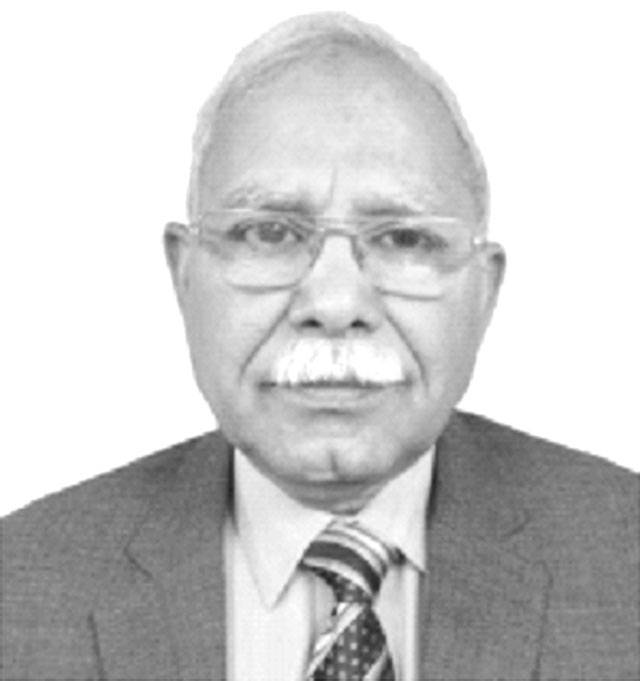The snow-balling political crisis in the country is likely to push the country towards yet another national tragedy if sanity does not prevail and egos are allowed to take precedence over strict adherence to the constitution by all the stakeholders, particularly its custodians. Regrettably, our judicial history is not so enviable. It is replete with verdicts bereft of constitutional authority and legitimacy which are mainly responsible for where the country stands at the moment. The opinion rendered by the SC on Article 63-A with a 3-2 majority which amounted to re-writing the concerned Article of the constitution and the verdicts delivered in regards to the general election in Punjab and KP has created a situation of confrontation between the parliament and the judiciary for which the latter is mainly responsible.
Perhaps an anatomy of the verdicts given by the SC in regard to general elections in Punjab and KP would be pertinent here to elucidate the conundrum. The provincial assembly of Punjab was dissolved on 14th January followed by the KP assembly on 18th January. According to Article 224(2) of the constitution general elections in those provinces should have been held within ninety days i.e. by the 14th and 18 April respectively. Taking suo-motu notice of the delay in the announcement of polls the SC ordered the ECP to hold an election in Punjab (only) in conformity with Article 224(2) of the constitution and sections 57 and 58 of the Election Act 2017. The ECP as per section 57 consulted the President who announced 30th April as the election date in Punjab. It is pertinent to point out that as per article 224(2) the election should have been held by the 14th of April. It is clear that the constitutional requirement of 90 days had already been breached.
The election commission after failing to get the required finances from the government for holding an election, refusal by the judiciary to provide ROs and the inability of the security establishment to spare personnel for security duty during the election decided to postpone the election till 8th October 2023 in terms of section 58 of the Election Act 2017. The SC in its verdict on a petition against the ECP decision held that its action of postponing the election was unconstitutional. Not only that it also fixed 14 May as the date for election as well as announced the requisite schedule in this regard. The date announced by the SC went beyond the ninety-day limit by one month which again was a breach of the relevant Article of the constitution.
It is evident from the foregoing submissions that the decision of the ECP to change the date was in conformity with the Election Act 2017 and it also enjoyed the protection of Article 254 of the Constitution which says “When any act or thing is required by the constitution to be done within a particular period and it is not done within that period, the doing of the act or thing shall not be invalid or otherwise ineffective by reason only that it was not done within that period “ In view of the foregoing an inference that can safely be drawn is that in regard to the holding of the election, an exclusive reference to Article 224(2) is not appropriate. This Article needs to be read with Article 254 and sections 57 and 58 of the Election Act 2017. After reading them together it becomes crystal clear that the verdict of the SC itself was unconstitutional as well as contrary to Election Act 2017. Is it not ironic that the SC is only focused on the election in Punjab and has not said anything about the election in KP? Does Article 224(2) not apply to that province? It has legitimately raised many eyebrows.
The CJ Atta Umar Bandial speaking at a function in Lahore on 7 May said “ Polls within 90 days is not a choice but a constitutional duty. The court judgment must be in accordance with the constitution and when they are passed on merits of the case we have moral authority” Nobody can take issue with what he said. But the question is has the court stuck to the constitution and law enacted by the parliament? In my view, the SC must defuse the situation by conducting a review of the decision on the petition filed by the ECP. If the election cannot be held according to Article 224(2) due to a situation, the heavens are not going to fall down. If it is obligatory to implement Article 224(2) so are Article 254 and Sections 57 and 58 of the Election Act 2017.
Sunday, May 19, 2024
Ninety days

The writer is a freelance columnist. He can be reached at ashpak10@gmail.com.
Sports & Genocide
May 18, 2024
Healing AJK
May 18, 2024
A New World Order
May 18, 2024
Tobacco Toll
May 17, 2024
Rushed Reforms
May 17, 2024
Continuing Narrative of Nakba
May 18, 2024
Teacher Struggles
May 18, 2024
No Filers out of Reach
May 18, 2024
Hoax of Inflation Coming Down
May 17, 2024
Rising Inflation
May 17, 2024
ePaper - Nawaiwaqt
Advertisement
Nawaiwaqt Group | Copyright © 2024





